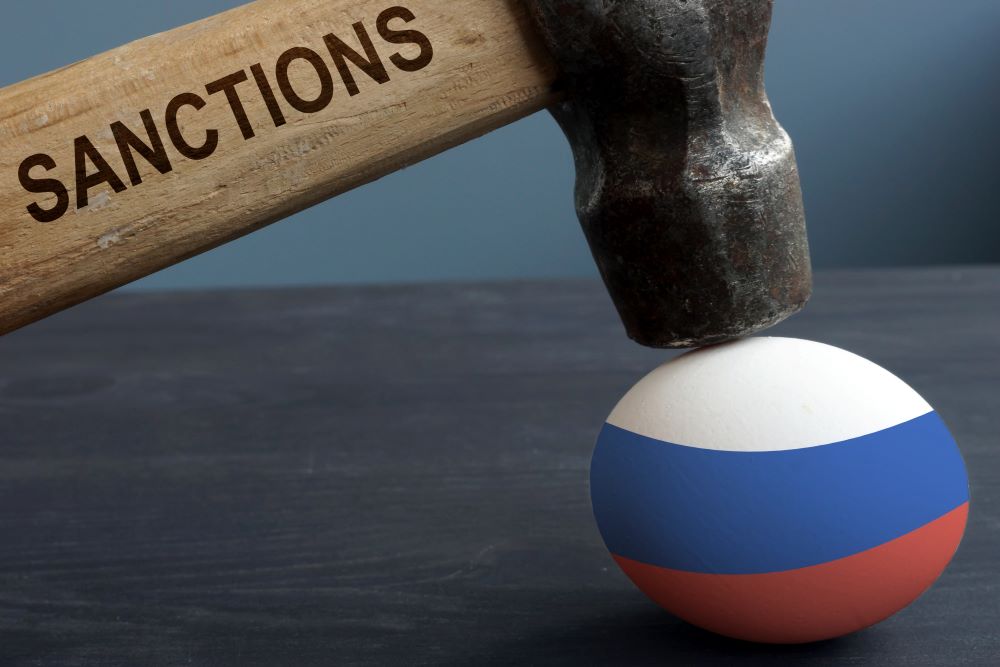
The sanctions on Russia are having a severe effect on the economy, in spite of official protestations to the contrary, according to a leading US academic.
Jeffrey Sonnenfeld, a professor at Yale University, has been part of a research team following Western companies’ activities in Russia since the imposition of sanctions after the invasion of Ukraine on 24 February this year.
The research tracked firms withdrawing from the Russian market, with many of the early leavers being big technology, professional services and oil firms.
Market rewards
Sonnenfeld told BBC Radio 4’s Today programme today (Monday 15 August) that the report had graded companies – including the 1,200-plus that withdrew from Russia – on a A-to-F rating, with ‘A’ being companies that left completely and ‘F’ being companies that remained.
“We found that the more dramatically that firms pulled out, the better the market rewarded them,” he told the programme.
Russian data
Responding to Kremlin figures suggesting that the Russian economy had not been as badly hit by the sanctions, Sonnenfeld noted that many key Russian indicators had not been released by the government.
“Wherever Russia is the buyer, we went to the seller, wherever Russia is the seller, we went to the buyer,” he said, “so we can reconstruct that data.”
Impact
Sonnenfeld argued that the Russian economy has been “profoundly” impacted by the Western sanctions regime.
“We can actually see enormous debt growing, massive unemployment, soaring inflation … Russia is imploding.”
The research also found that Russia had lost access to EU export markets and that Russian industry was struggling to maintain production levels due to a lack of Western-made components and technology.
Russian parts
Politico reports that Russian national newspaper Izvestia was carrying news that the Russian transport ministry was looking at how to recycle parts from existing planes to replace worn or broken equipment.
The Telegraph also reported that the Russian car industry was shutting down factories and furloughing thousands of workers in response to Western sanctions.
Grain
ESM (or European Supermarket Magazine) has reported hesitance by western purchasers to buy Russian grain and fertilisers, in spite of assurances from the US government that this would not breach sanctions.
This reluctance has left Russian exporters unable to take advantage of a record crop bump this summer, with foreign companies fearing the impact of secondary sanctions.
‘Parallel import’ networks
Both The Guardian and Reuters have reported on the existence of so-called ‘grey imports’, where Russian companies buy products – without permission of the trademark owners – from outside Russia to circumvent some supply restrictions.
In this way, according to The Guardian and Reuters, Western goods are still being offered for sale in Russia.



